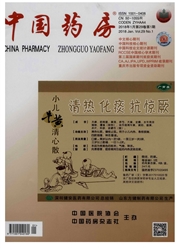

 中文摘要:
中文摘要:
新药临床试验模拟在新药研发中发挥越来越重要的作用,其对相关信息(尤其是药物的药理学知识)进行综合,用于研究假设并改进试验设计,目的是为了减少试验数目、降低成本、缩短开发时间、提高试验成功率、使数据中的信息最大化。另外,通过模拟还可获得对药物处置和作用的深刻理解。在新药研发中,临床试验模拟可用于对变异进行建模、评估临床操作因素的影响、评估假设、比较和优化试验设计、区分竞争性药物等。本文介绍临床试验模拟的概念、作用、发展历程、方法学,重点说明其在新药开发中的应用及意义,最后做了展望。模拟可用于临床试验的很多方面,这里讨论的模拟主要基于药动学/药效学模型(反映药物的处置和作用)。
 英文摘要:
英文摘要:
Clinical trial simulation is playing more and more important role in new drug development,making the drug development more efficient and informative.Clinical trial simulation can be viewed as the abstraction of the clinical trial process.It is used to investigate assumptions and to influence trial design in order to maximize the amount of information gained in drug development.Simulation can be used for modeling variability,estimating the impact of operational factors,evaluating assumptions,comparing trial designs,discriminating between competing drugs.In this review,we describe the motivations and history,general methodology and some examples of clinical trial simulation,including a brief description of current software available for performing such simulations,and finally our view of the current and future impact and directions for this powerful technology in drug development.Simulation is applicable to many areas of the clinical trial process.The focus here centers on the use of simulation with models based upon the pharmacokinetic-pharmacodynamic relationship that reflect the disposition and effect of drugs as observed in clinical trials.
 同期刊论文项目
同期刊论文项目
 同项目期刊论文
同项目期刊论文
 期刊信息
期刊信息
